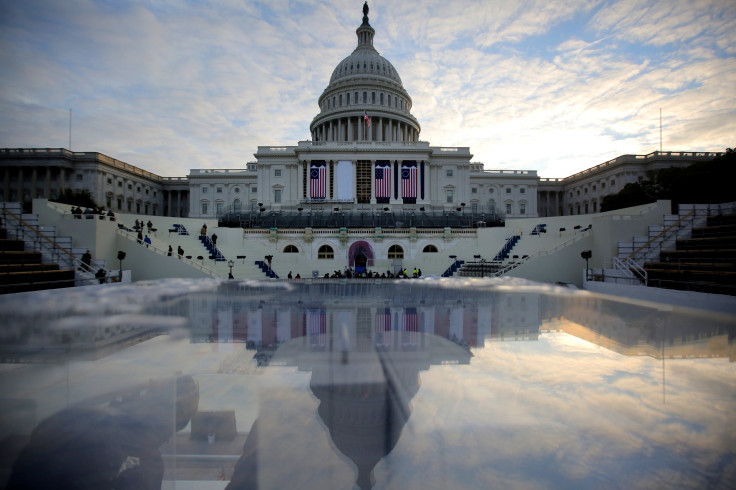Trump Inauguration Latest: John Lewis, Maxine Waters, Other Democrats Won’t Attend Ceremony This Year As Women’s March Gains Popularity

The Facebook page for the Jan. 21 Women’s March on Washington says nearly 200,000 people plan on going and an additional 256,000 are interested, compared to the Presidential Inauguration’s expected maximum of 900,000 attendees. But there’s a chance that one might eclipse the other, and Democrats in Congress have only accelerated the trend.
As Washington D.C. Councilman Charles Allen told the New York Daily News, requests for bus parking permits at the city-run RFK Stadium lot by march participants have outnumbered requests by inauguration attendees by about 1,000, with at least 1,200 permit requests involving protesters and just 200 related to the Jan. 20 ceremony.
The Women’s Marchers aren’t alone, and the day after the inauguration won’t be the only day for Americans to air their grievances against President-elect Donald Trump, who lost the popular vote by a margin of nearly 2.9 million. The National Park Service told Reuters that, as of Thursday, 27 protest groups — more than quadruple the number for previous inaugurations — had won permits to protest the ceremony on Jan. 20.
The protesters won’t be the only ones showing their defiance of the president-elect.
In a heated public spat over the weekend between Trump and civil rights hero Rep. John Lewis (D-Georgia), Lewis told NBC News that he would be boycotting the event, as he did not see Trump as a “legitimate” leader amid allegations of foreign tampering in the election. The president-elect called Lewis “all talk” and “no action,” prompting other members of Congress to respond with their own inauguration boycotts. As the Los Angeles Times reported Sunday, one in five of California's members of Congress had opted to stay home on Jan. 20.
"All talk, no action."
— Mark Takano (@RepMarkTakano) January 14, 2017
I stand with @repjohnlewis and I will not be attending the inauguration. pic.twitter.com/z8Q0wA9OPK
I will NOT attend the inauguration of @realDonaldTrump. When you insult @repjohnlewis, you insult America.
— Yvette D. Clarke (@RepYvetteClarke) January 14, 2017
My interview on @MSNBC w/ @RichardLui on why I am boycotting @realDonaldTrump Inauguration to #StandWithJohnLewis. https://t.co/yXT42FNovF
— Ted Lieu (@tedlieu) January 16, 2017
I will not attend the #inauguration2017 next week- cannot celebrate the inauguration of a man who has no regard for my constituents. #Bronx pic.twitter.com/Uz3NTgXl35
— Rep Jose E. Serrano (@RepJoseSerrano) January 12, 2017
I never ever contemplated attending the inauguration or any activities associated w/ @realDonaldTrump. I wouldn't waste my time.
— Maxine Waters (@RepMaxineWaters) January 15, 2017
When #Trump places his hand on the Bible & takes the Oath of Office, he will in that moment, be in violation of that oath & the Constitution pic.twitter.com/mZCQrTua4R
— Mark DeSaulnier (@RepDeSaulnier) January 14, 2017
I will not be attending inauguration of @realDonaldTrump but WILL participate in the @womensmarch on January 21st. https://t.co/tlqS26ulj7
— Rep. Nydia Velazquez (@NydiaVelazquez) January 9, 2017
As of Monday morning, the number of Congress members skipping out on Trump’s swearing-in stood at 25, according to CNN. All of them were Democrats.
© Copyright IBTimes 2025. All rights reserved.






















